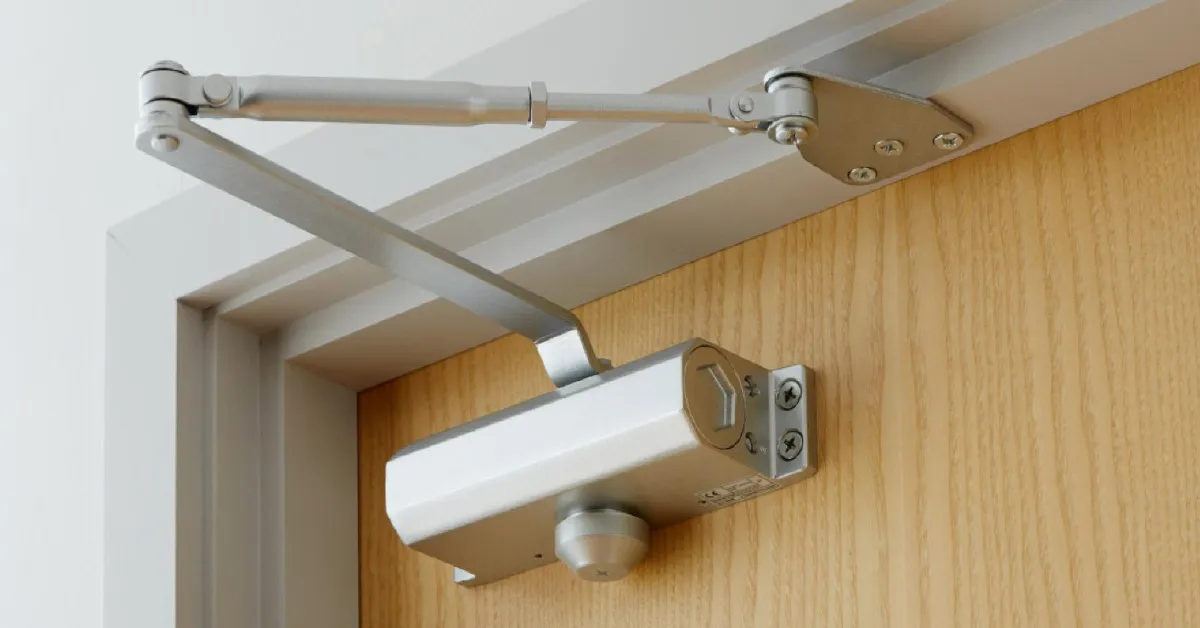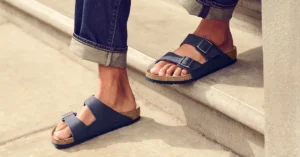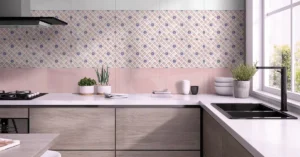You step out of a meeting room, and the door shuts behind you quietly, no loud bang, no disturbance. That is the silent efficiency of a door closer. Whether it’s an office corridor or your home entrance, choosing the right closer ensures safety, comfort, and elegance. It prevents accidental slams, saves energy, and improves privacy. With various models available, from surface-mounted to automatic door closers with sensors, selecting the right one can be tricky. Let’s explore how to find the perfect match for your space.
1. Understand Door Type and Weight
Every door closer is designed for a specific weight range. A light wooden door in a home requires a different closer than a heavy steel door in an office. For example, hydraulic closers are ideal for heavy doors, while spring-loaded versions suit lighter ones. Always match the closer’s capacity with the door weight mentioned in its specifications.
2. Consider the Frequency of Use
Doors in busy spaces like schools, malls, or offices need closers that can withstand repeated use. High-traffic areas benefit from heavy-duty models that guarantee durability and performance. Residential settings, with lower traffic, can use regular-duty closers. This selection ensures long-term reliability and reduces maintenance needs.
3. Prioritise Safety and Accessibility
Safety and accessibility should guide your decision. Many modern closers comply with building codes and accessibility standards. Adjustable closing speeds and delayed actions allow easy entry for children and older adults. Additionally, fire-rated closers are mandatory in certain commercial premises. Choose one that meets both functional and safety requirements for your space.
4. Evaluate Installation and Aesthetics
The installation type determines how the closer integrates with your door’s design.
- Surface-mounted closers: Easy to install and maintain.
- Concealed closers: Hidden within the door or frame, offering a cleaner look.
- Parallel arm models: Suitable for outward-opening doors, ensuring stability.
For interiors where aesthetics matter, concealed closers offer a neat, minimalist appeal. However, surface-mounted options are cost-effective and practical for offices or industrial units.
5. Match with the Environment
In areas exposed to extreme temperatures or humidity, choose corrosion-resistant or temperature-compensated models. For instance, a door closer in a cold storage unit needs a mechanism that operates smoothly despite freezing temperatures. Similarly, outdoor entrances should have closers made of weather-resistant materials for durability.
6. Check Functionality and Adjustability
Modern models include features that enhance performance and flexibility. Look for:
- Closing speed control: Adjusts the speed at which the door closes.
- Backcheck function: Prevents the door from slamming open.
- Latching speed: Ensures secure locking.
- Delayed action: Gives extra time for passage.
Customisable settings make the closer adaptable for different environments, improving both user comfort and door longevity.
7. Installation Tips
Proper installation ensures reliable operation.
- Always follow the manufacturer’s instructions carefully.
- Check alignment between the door and frame.
- Use the right mounting bracket for your door type.
- Ensure screws are firmly tightened to avoid vibration or noise.
When in doubt, it is advisable to consult a technician or authorised installer to ensure accuracy and long-term efficiency.
8. Maintenance Guidelines
To keep your door closer performing well:
- Inspect it regularly for signs of wear or leakage.
- Lubricate the moving parts as recommended.
- Adjust the closing and latching speeds periodically.
- Keep it clean and free from dust or debris.
Routine maintenance extends the lifespan of the closer and helps maintain silent, controlled operation.
9. Explore Smart and Automatic Options
For modern buildings and smart homes, consider upgrading to an automatic door closer with a sensor. These closers detect motion and operate without manual effort, ensuring convenience and hygiene. Ideal for healthcare centres, airports, and corporate offices, they improve accessibility and save energy by reducing unwanted airflow.
10. Compare Brands and Quality Standards
Always choose products that meet international safety certifications such as CE or EN ratings. Leading companies like Godrej Enterprises Group offer closers designed for both residential and commercial use. Their range includes surface-mounted, concealed, and heavy-duty models that balance style, strength, and smooth functionality. Investing in a certified brand guarantees longevity and safety.
11. Choosing Based on Space Type
- For Residential Doors: Opt for standard or concealed closers that blend with the interior and operate quietly.
- For Commercial Buildings: Use heavy-duty hydraulic closers or automatic ones with sensors in high-traffic areas.
- For Glass Doors: Select models designed with aesthetic appeal and soft-closing mechanisms.
- For Fire Doors: Use UL- or EN-certified closers to ensure compliance and safety.
Choosing the correct type enhances usability while complementing the architectural design.
Conclusion
A well-chosen door closer does more than shut the door; it adds safety, comfort, and elegance to every movement. From quiet home entrances to busy office corridors, the right model ensures durability and ease of use. While traditional versions serve basic needs, an automatic door closer with a sensor adds a modern, hands-free convenience that suits today’s spaces. You can consider companies like Godrej Enterprises Group, which offer reliable solutions engineered for performance and style. Investing in the right closer today ensures your doors work silently and efficiently for years to come.





